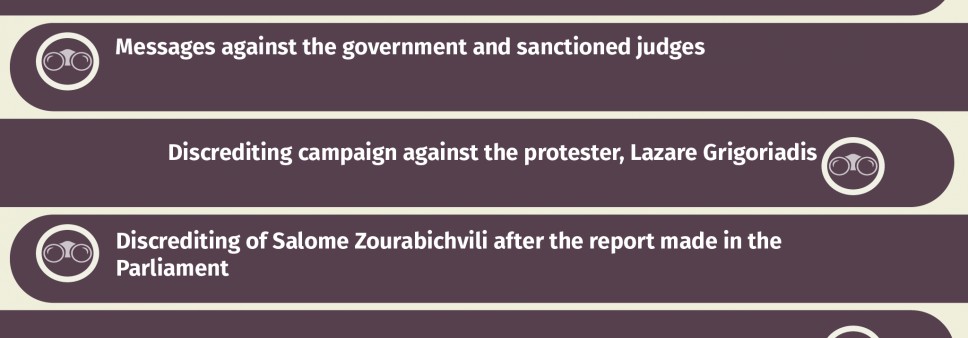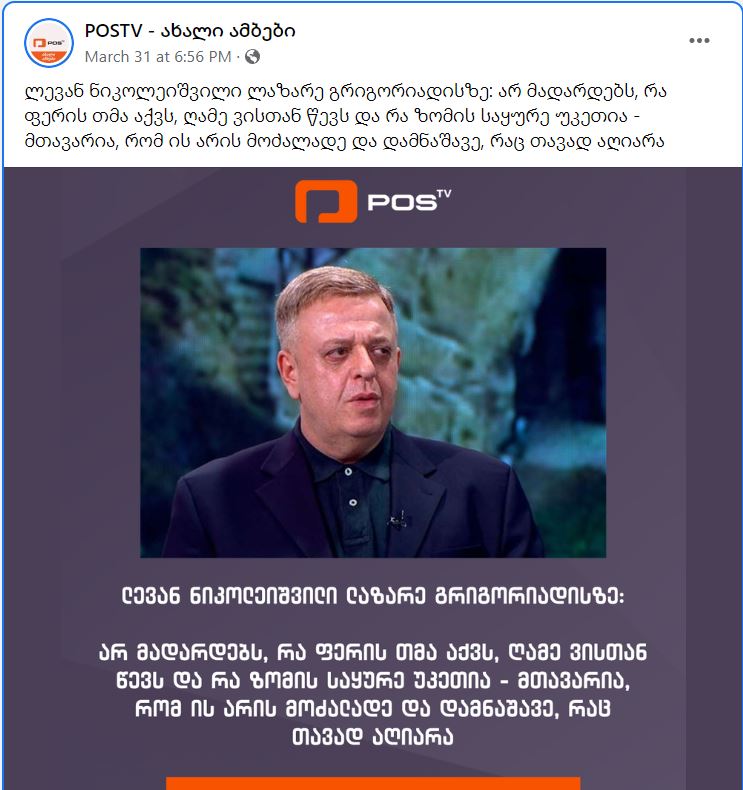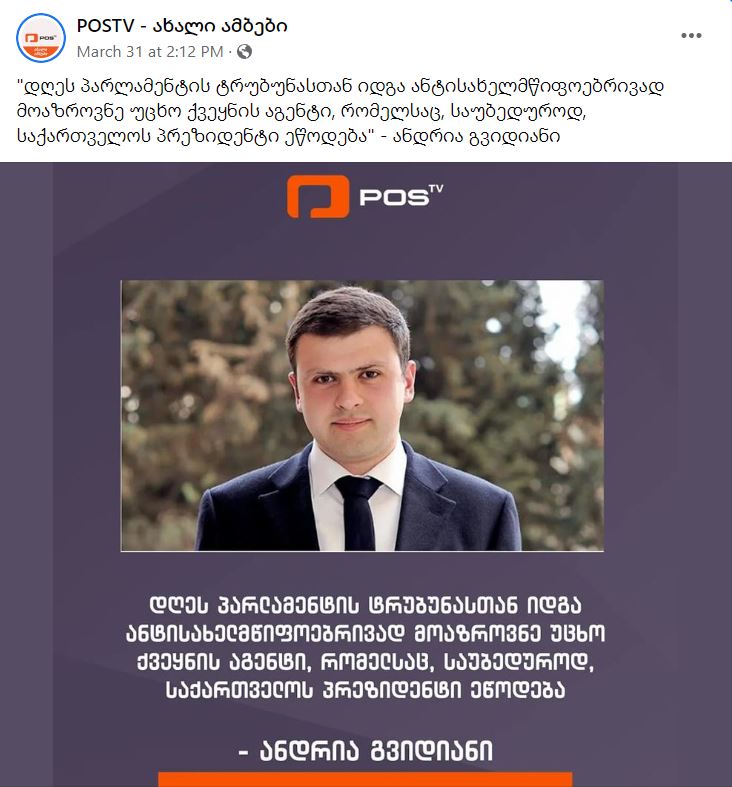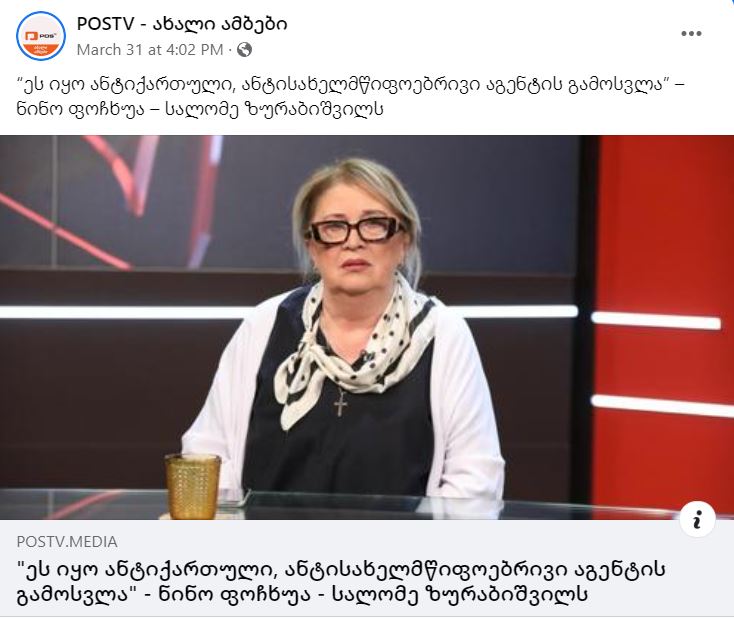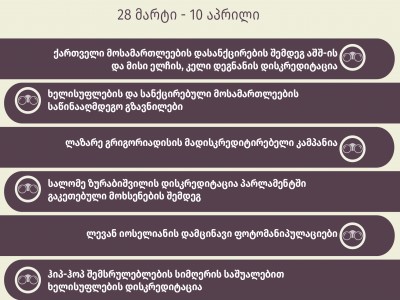Discrediting and propaganda messages spread on Facebook March 28 - April 10
Discrediting the US and the Ambassador Kelly C. Degnan after sanctioning Georgian judges
On April 5, the United States of America imposed sanctions on three current and one former judge of Georgia for their involvement in corrupt activities. After this, anonymously operating Facebook pages published discrediting posts of the US ambassador to Georgia, Kelly C. Degnan, in which she was mentioned with ridiculing terminology. In addition, the US Embassy was accused of double standards due to its widespread statements against the previous and current government. Posts on the mentioned topic were actively spread on the Facebook page of "POSTV Analytics", among them there were government officials, the so-called Statements of "People's Power" and sanctioned judges. The pro-government pages accused the US of trying to gain influence over Georgian court and "shaking the country's sovereignty". In addition, they accused the US Government of establishing political justice. These actors connected the imposition of sanctions with the entry denial of US citizen Marshall Comins to Georgia, who, according to them, is a trainer of the non-governmental organization "Franklin Club".
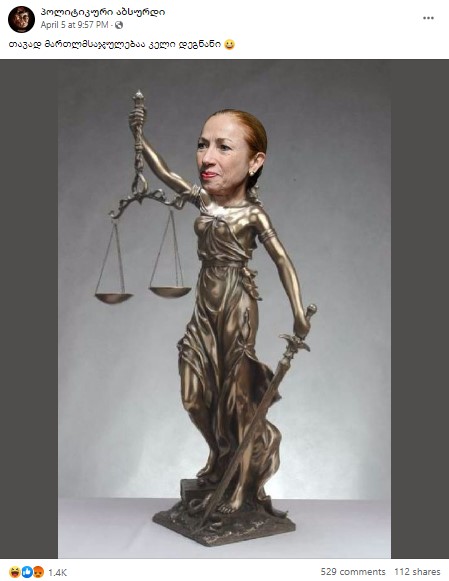
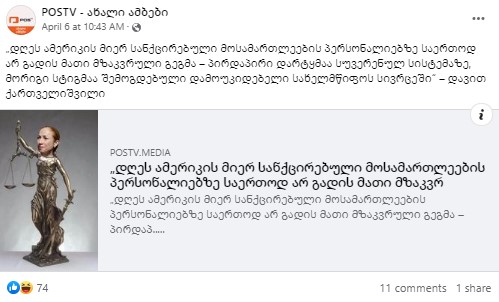

Photo 1
Political Absurd/Politikuri Absurdi: Kelly Degnan is Justice herself
Photo 2
PosTV – News: “Today, the sancionting the judges is not their final plan. This is a direct intervention in the sovereign system, another stigma introduced into the space of an independent state” – Davit Kartvelishvili
Photo 3
PosTV- analytics: Partners do not behave this way
Messages against the government and sanctioned judges
After the US State Department imposed sanctions on some of the Georgian judges, photo manipulations were spread on anti-government pages. The mocking posters echoed both the reactions of the sanctioned judges and the statements made by the representatives of the ruling power.
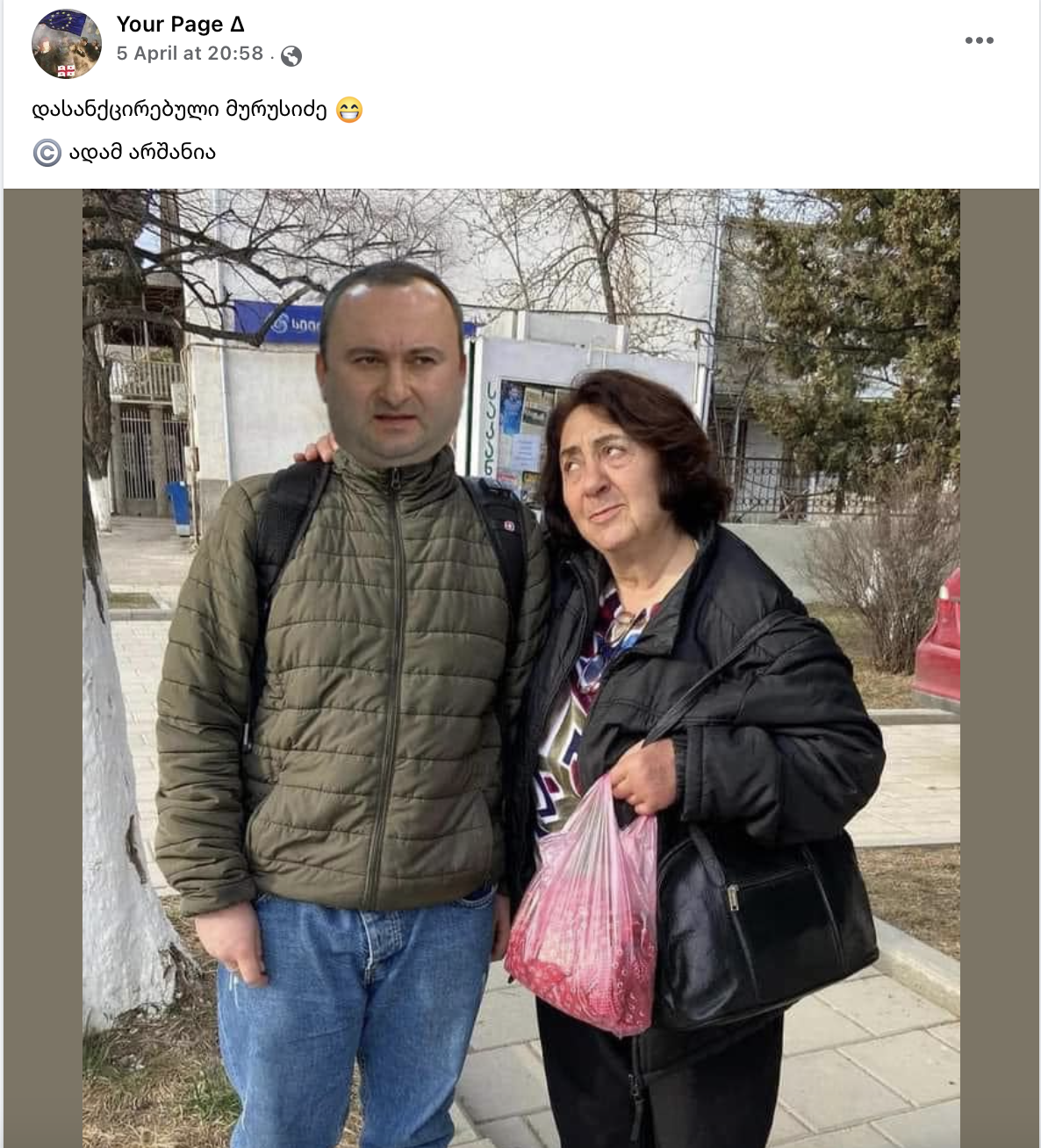

Photo 4:
Your Page: Sanctioned Musiridze
Photo 5:
Politikuri Vektori[Political Vector]
Discrediting campaign against the protester, Lazare Grigoriadis
On March 31, the Tbilisi City Court sentenced Lazare Grigoriadis, who was arrested by the police on March 29. He was arrested on charges of attacking a policeman and destroying other people's property during demonstrations against the law on "foreign agents", and was placed in pretrial detention. In parallel with the decision made by the court, a campaign against the arrested young man was going on the pro-government media outlets and the opposition's discrediting anonymous pages.
Pages operating anonymously called Lazare Grigoriadis "Rustaveli's rescuer", published footage from the action and opposed the popular opinion of the public - that the activist is a political prisoner. At the same time, the widespread posts indicated that the opposition is trying to make a hero out of the detained "violent". Messages against the detainee were also spread in a homophobic context.
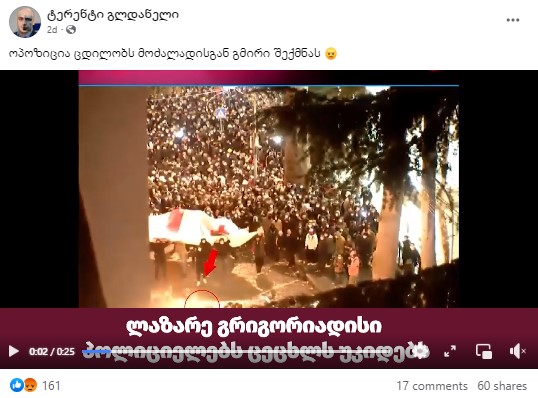
Photo 6:
Terenti Gldaneli: The opposition is trying to make a hero out of the violent person
Pro-government Facebook pages, including the "POSTV" page, spread information that Lazare had been convicted of violence against his father in the past. A fragment from the TV Imedi show was also published on anonymous pages, with a discrediting description of the detainee.
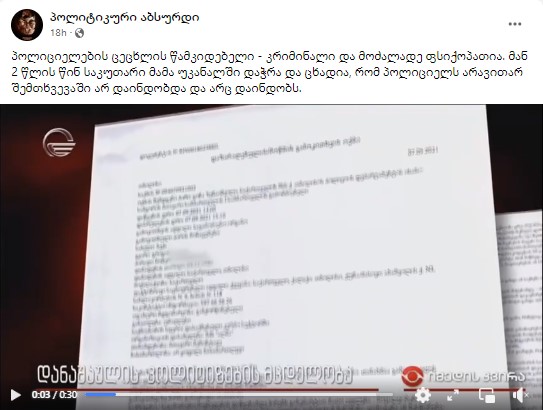
Photo 7:
Political Absurd: He is a police arsonist, a criminal and a violent psychopath. He stabbed his own father in the bum 2 years ago and it is clear that he would not and will not have mercy on the police under any circumstances.
Pages operating anonymously also published pictures of the correspondence broadcasted by "TV Imedi" – news- in which, according to the story, the correspondence of the participants of the March 7-8 protest is depicted. By publishing "screenshots", the pro-government media outlet and anonymous pages claimed that specific individuals were "preparing for a coup" at the rally. A post with the same content was shared as an advertisement on the pro-government fake media page - PrimeNews.ge
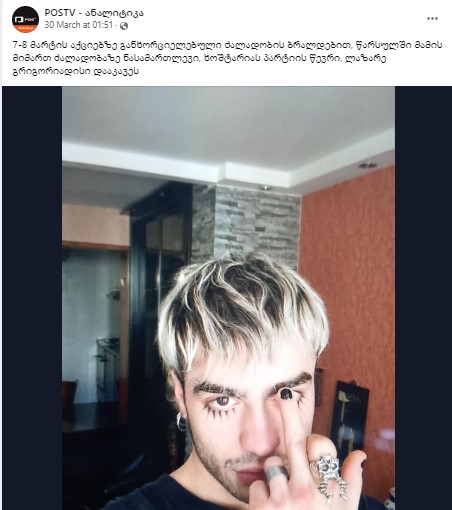

Photo 8:
Postv – analytics: Lazare Grigoriadis, a member of the Khostaria party, who was convicted of violence against his father in the past, was arrested on charges of violence during the March 7-8 protests.
Photo 9:
Prime News.ge: Grigoriadis, who was arrested during the March protests, has been using his right to remain silent until now, although he confirmed the fact of violence in his initial testimony.
On the "POSTV - News" page, the ruling party, "Georgian Dream" and the so-called representatives of "People's Power", as well as pro-government experts were actively involved in the campaign against Lazare Grigoriadis. With the spread messages, they emphasized the affiliation of the arrested young man with the opposition parties and supported his punishment; In addition, they tried to discredit him with xenophobic and homophobic messages.
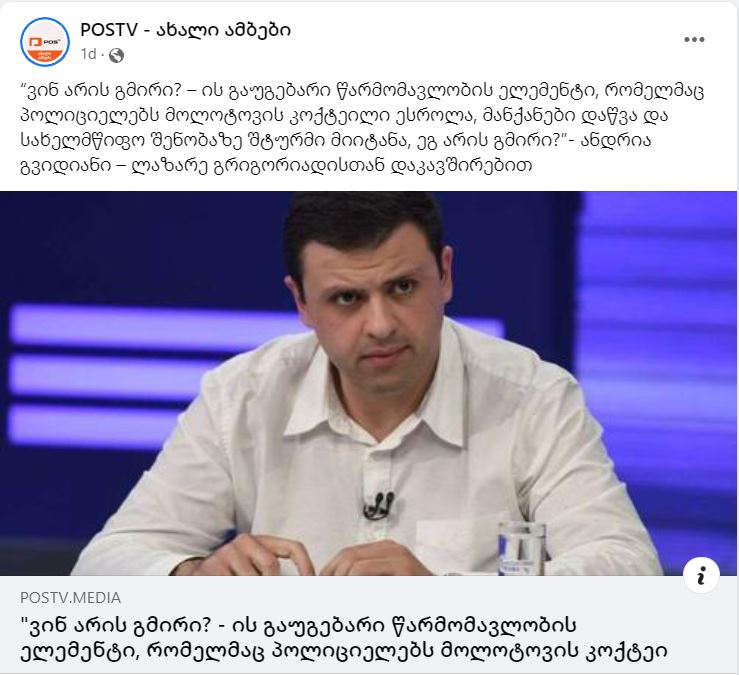
Photo 10:
Postv – news: who is the hero? That element of unknown origin who threw Molotov cocktails at the police, burned cars and stormed the state building - is he a hero? Andria Gvidiani regarding Lazare Grigoriadis
Photo 11:
Postv –news: Levan Nikoleishvili about Lazare Grigoriadis: I don't care what color his hair is, or who he sleeps with, or what size earrings he wears. The main thing is that he is a violent and criminal, which he himself admitted.
For attending the rally in support of Lazare Grigoriadis, held in front of the government administration, the European parliamentarian Viola von Kramon also became the object of criticism of "People's power" and pro-government experts. Posts against him were also published on pages operating anonymously.
Photo 12:
Postv –news: Viola von Cramon came to the rally. When she flies from here, I recommend her to go to the rally in Paris - 400 people are arrested there. Then she should protest the arrest of 900 people in Washington." - Davit Kartvelishvili about the rally in support of Lazare Grigoriadis.
Discrediting of Salome Zourabichvili after the report made in the Parliament
On March 31, the President of Georgia, Salome Zourabichvili, presented an annual report on the most important issues of the state of the country to the Parliament. The President critically responded to the recent actions of the government, which he called contrary to the goal of the country's foreign policy, and pointed to the strengthening of the one-party rule of "Georgian Dream" in the country. After the report, posts discrediting Zourabichvili were published on anonymous pages operating against the opposition, in which they pointed to grammatical errors made during the President's report. A fragment of Salome Zourabichvili's interview, which was about the August 2008 war, was also published on the page “Archive”.
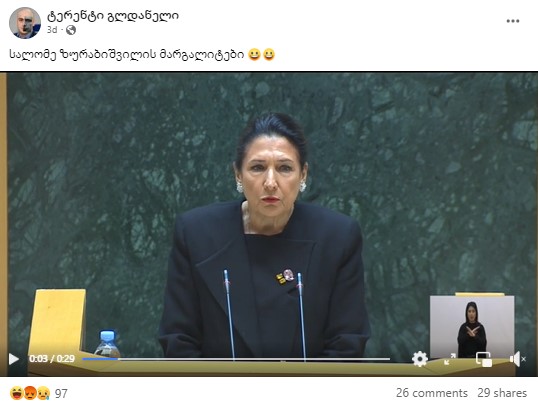
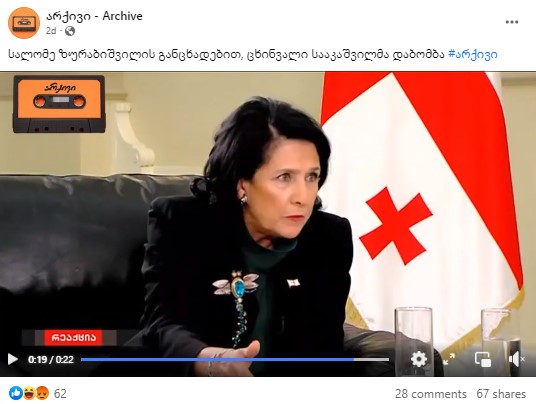
Photo 13:
Terenti Gldanei: Pearls of Salome Zourabichvili
Photo 14:
Archive: According to Salome Zourabichvili, Tskhinvali was bombed by Saakashvili
After the president's speech, the critical statements made by pro-government experts, "Georgian Dream" members and the representatives of so-called "People's Power" were published on the pages of "POSTV Analytics" and "POSTV - News". Zourabichvili was referred to as an "agent of a foreign country" in the part of the messages. She was also accused of deepening polarization.
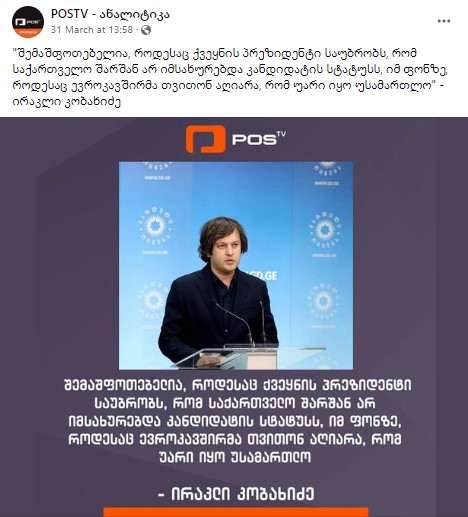
Photo 15:
Postv-analytics: “It is disturbing when the President of Georgia says that Georgia did not deserve the candidate status last year. The European Union itself admitted that the refusal was unfair.” –Irakli Kobakhidze
Photo 16:
Postv-news: “Today, an agent of a foreign country, who, unfortunately, is called the President of Georgia, was standing at the tribune of the Parliament.” – Andria Gvidiani
Photo 18:
Postv-news: “It was the speech of an anti-Georgian, anti-state agent.” – Nino Potchkhua
Discrediting the government through the songs of hip-hop artists
Pages operating against the government published a specific passage cut from the song "My People" by the hip-hop artists known as "IV Dasi". The mentioned passage was related to the processes developed in March regarding the Russian-style law and sharp criticism of the government.
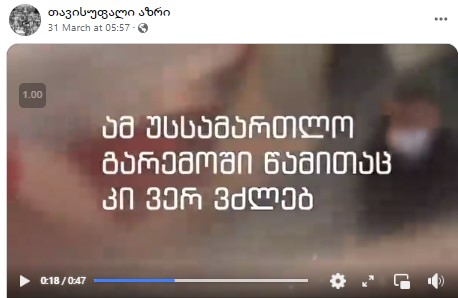
Photo 19:
Tavisupali Azri/Free Opinion
Mocking photo manipulations of Levan Ioseliani
On the anonymous pages operating against the government, the newly elected public defender, Levan Ioseliani, was being mocked by means of photo manipulations. The pages indirectly pointed to his ineffective response against the background of the current situation in the country.

Photo 20:
Political Memez
Mocking posts about the protests held by the "United National Movement" and Levan Khabeishvili
On April 9, a rally called "Together in Europe" organized by the "United National Movement" was held in the Rustaveli Avenue. Pro-government and anti-opposition anonymous Facebook pages spread discrediting messages against the rally. In the published posts, they mocked the speakers and appealed to the lack of people. Levan Khabeishvili's mocking posts were published even after he shared an excerpt from a poem by the Hungarian poet Sándor Petőfi on his Facebook profile before the rally. There were messages about the same issue on the Facebook page of "POSTV Analytics".

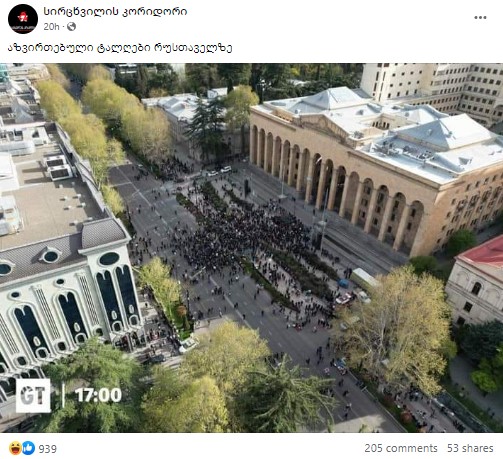
Photo 21:
Postv-analytics: What does Khabeishvili want? (+extract from the poem)
Photo 22:
Sirtskhvilis Koridori: Crowd in the Rustaveli Avenue
About weekly review
Within the social media monitoring ISFED presents the weekly overview and describes the messages that echo the political issues, virally circulates on social networks (more or less) during the week, and more than one actor, account or page is involved in its distribution. In certain cases, the most interactive posts of the week are presented.
The organization uses the Facebook monitoring tool- Crowdtangle - for data processing and relies on an existing, up-to-date database of pages/accounts involved in discrediting campaigns.
The pages are available on the platform - www.disinfoobserver.ge
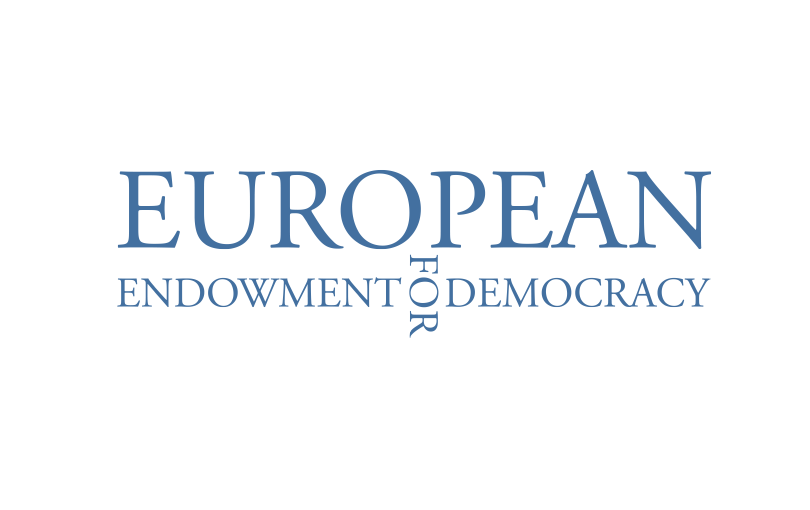
The social media monitoring program of the International Society for Fair Elections and Democracy (ISFED) is supported by the European Endowment for Democracy (EED). This publication is solely owned by ISFED and may not reflect the views of the donor.

